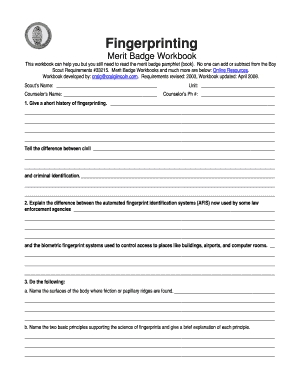5 Key Takeaways from NJ v TLO Worksheet Answers

Understanding the NJ v TLO Case: A Breakdown of the Worksheet Answers
The New Jersey v. T.L.O. case is a landmark Supreme Court decision that has significant implications for students’ rights and the Fourth Amendment. The case, decided in 1985, centered around a 14-year-old girl, T.L.O., who was searched by a school administrator after being caught smoking in the bathroom. The search led to the discovery of marijuana and other incriminating items. As a result, T.L.O. was charged with delinquency and faced disciplinary action from the school.
The case ultimately made its way to the Supreme Court, which was tasked with determining whether the search of T.L.O.’s purse and other belongings was a violation of her Fourth Amendment rights. The court’s decision had far-reaching consequences for students, educators, and the broader community.
In this article, we’ll delve into the key takeaways from the NJ v T.L.O. worksheet answers, exploring the case’s background, the Supreme Court’s decision, and the impact on students’ rights.
Key Takeaway 1: The Background of the Case
The NJ v T.L.O. case began on March 7, 1980, when a teacher at Piscataway High School in New Jersey reported seeing T.L.O. smoking in the bathroom. The school’s vice principal, Theodore Choplick, questioned T.L.O. about the incident, and she denied smoking. However, Choplick searched T.L.O.’s purse and found a pack of cigarettes, rolling papers, and a small bag of marijuana.
T.L.O. was subsequently charged with delinquency and faced disciplinary action from the school. Her lawyers argued that the search of her purse was a violation of her Fourth Amendment rights, which protect citizens from unreasonable searches and seizures.
Key Takeaway 2: The Supreme Court's Decision
The Supreme Court ultimately ruled in favor of the school, holding that the search of T.L.O.’s purse was reasonable under the circumstances. The court established a two-part test to determine the reasonableness of a search:
- Was the search justified at its inception? In other words, did the school have a legitimate reason to conduct the search?
- Was the search reasonably related in scope to the circumstances that justified the search? Did the search go beyond what was necessary to address the initial concern?
The court applied this test to the facts of the case and concluded that the search was justified because it was related to the initial concern (T.L.O.’s smoking in the bathroom) and was reasonably scoped (limited to the purse and its contents).
Key Takeaway 3: The Impact on Students' Rights
The NJ v T.L.O. decision has significant implications for students’ rights. The Supreme Court’s ruling established that students have a reduced expectation of privacy in the school setting. This means that schools have greater latitude to conduct searches and seizures than law enforcement agencies in the broader community.
However, the decision also emphasized that schools must still have a legitimate reason to conduct a search and must limit the scope of the search to what is necessary to address the initial concern.
Key Takeaway 4: The Balancing of Interests
The NJ v T.L.O. decision highlights the delicate balance between students’ rights and the need for schools to maintain order and discipline. On one hand, students have a legitimate interest in maintaining their privacy and protecting their personal belongings. On the other hand, schools have a responsibility to ensure a safe and orderly learning environment.
The Supreme Court’s decision recognizes that schools must balance these competing interests and take a nuanced approach to searching students. Schools must have a legitimate reason to conduct a search and must limit the scope of the search to what is necessary to address the initial concern.
Key Takeaway 5: The Legacy of the Case
The NJ v T.L.O. case has had a lasting impact on education law and policy. The decision has been cited in numerous cases involving student searches and seizures, and has helped shape the boundaries of students’ rights in the school setting.
In recent years, the case has also been referenced in debates about student safety and security, particularly in the context of school shootings and other violent incidents. The decision serves as a reminder that schools must balance competing interests and take a thoughtful approach to ensuring student safety while also protecting students’ rights.
📝 Note: The NJ v T.L.O. case is an important landmark in education law, and its legacy continues to shape the way schools approach student searches and seizures.
To summarize, the NJ v T.L.O. case is a landmark decision that has significant implications for students’ rights and the Fourth Amendment. The case highlights the delicate balance between students’ rights and the need for schools to maintain order and discipline, and serves as a reminder that schools must take a nuanced approach to searching students.
The key takeaways from the NJ v T.L.O. worksheet answers emphasize the importance of understanding the background of the case, the Supreme Court’s decision, and the impact on students’ rights. By examining the case in depth, educators and policymakers can better navigate the complexities of education law and ensure that students’ rights are protected while also maintaining a safe and orderly learning environment.
What was the main issue in the NJ v T.L.O. case?
+The main issue in the NJ v T.L.O. case was whether the search of a student’s purse was a violation of her Fourth Amendment rights.
What was the Supreme Court’s decision in the NJ v T.L.O. case?
+The Supreme Court ruled that the search of T.L.O.’s purse was reasonable under the circumstances and did not violate her Fourth Amendment rights.
What are the implications of the NJ v T.L.O. decision for students’ rights?
+The NJ v T.L.O. decision established that students have a reduced expectation of privacy in the school setting, but schools must still have a legitimate reason to conduct a search and limit the scope of the search to what is necessary to address the initial concern.



